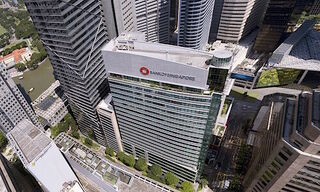The leaders of the Hong Kong Monetary Authority as well as the Securities and Futures Commission spoke about the future of the city’s financial sector, flagging the upcoming expansion of cross-border schemes with mainland China.
This year marks the 10th anniversary of the cross-border investment regime between Hong Kong and mainland China, called the «Connect» schemes after a two-way stock trading link was first established in 2014 with Shanghai. Since then, various other schemes have been introduced covering bonds, exchange-traded funds, wealth management products and more.
According to financial regulators at the «HSBC Global Investment Summit», further expansion of the connect schemes is expected.
Connect Scheme Pipeline
Securities and Futures Commission CEO Julia Leung spoke about a pipeline of further linkages with mainland China. They include block trading, renminbi counter inclusion and REIT (real estate investment trust) Connect.
«Expanding connectivity [...] is crucial to maintain Hong Kong’s position as a premier capital intermediary,» Leung said. «Core to this strategy is the mainland-Hong Kong Connect schemes.»
Deepening Links
But moving forward, Hong Kong could see fewer introduction of new links. According to Hong Kong Monetary Authority chief Eddie Yue, there will be less of a focus on the further roll-out of fresh connect schemes and, instead, more emphasis on deepening the existing ones.
This may include extending the list of eligible investors for its southbound Bond Connect scheme beyond Chinese banks to include asset managers, insurance companies and pension funds. He also spoke about the potential for greater eligibility and investment quotas for the Wealth Connect scheme.
«We will be focusing on expanding the current [schemes] and we will be focused on expanding the supporting hedging markets,» Yue added.
Middle East, ASEAN
In addition to connectivity to mainland China, regulators also highlighted the potential for building links to the Middle East and Southeast Asia. There have already been developments underway such as last year's first listings of Hong Kong ETF-linked depository receipts on the Thai exchange as well as the first listing of a Saudi-linked ETF listed on the Hong Kong exchange.
«I think that those two corridors – China-Hong Kong-Middle East and China-Hong Kong-ASEAN – have a lot of room to develop,» Yue said.


























